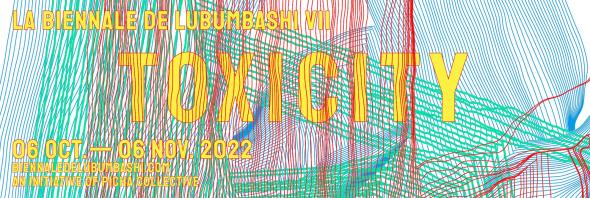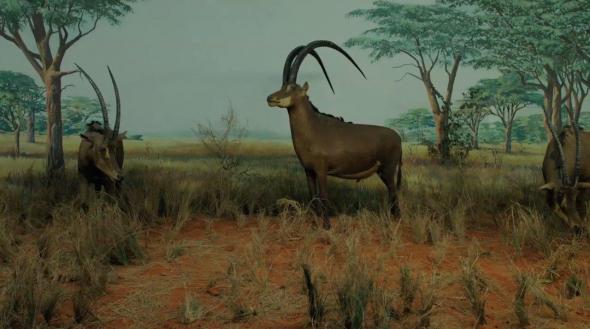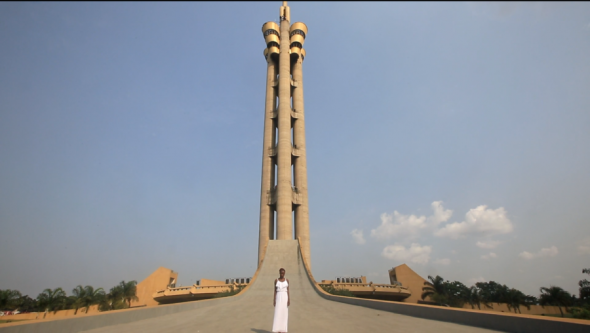Picha is pleased to announce the 7th edition of the Lubumbashi Biennale, Democratic Republic of Congo, to be held from October 6 to November 6, 2022 under the artistic direction of Picha. Picha, “image” in Swahili, which was founded as an association in 2008, will be joined by five associate curators - Paula Nascimento, Lucrezia Cipitelli, Bruno Leitão, René Francisco Rodríguez and Mpho Matsipa - and a curatorial advisor - Ugochukwu- Smooth C. Nzewi.

The Biennale explores the contemporary creation of the artistic scene in the Democratic Republic of Congo and in the world. It is today one of the most dynamic and experimental artistic events on the African continent. For its upcoming edition, the biennale will interrogate toxicity as a condition of existence that has inextricably affected social worlds under the title ’ToxiCité’ or ’ToxiCity’. As a starting point, the theme will open the collective elaboration of a critical and transformative take on the social and cultural environment, in Lubumbashi and in the world.
Composed of two concepts, that of the ‘toxic’ and that of the ‘city’, the next Lubumbashi Biennale envisages to question and reflect upon the link between contemporary life in the postcolonial urban setting of Lubumbashi and more widely in the urban Global South, and the impact of a number of industrial, economic, ecological, social and cultural processes that have historically contributed, for better and for worse, to the shape and dynamics of urban life in this and other parts of the world today.
The theme of toxicity, then, offers a starting point for a critical elaboration and consciousness of oneself and one’s natural, social and cultural environment, ‘as a product of the historical processes to date, which has deposited in you an infinity of traces, without leaving an inventory.’ (Gramsci 1971:324). By focusing on the theme of toxicity, the curatorial committee of this Edition endeavours to open up a critical space of artistic engagement and reflection to start exploring the possible shapes such ‘an inventory of traces’ might take, in the hope that such a compilation will also tell us something more about the possible futures to envision from here on.
Lubumbashi
Lubumbashi is the second largest city in Democratic Republic of the Congo. The main industrial centre of the mining district of southeastern Congo, it lies 110 miles (180 km) northwest of Ndola, Zambia. Lubumbashi is the name of a small local river. The town was established by Belgian colonists in 1910 as a copper-mining settlement and was designated an urban district in 1942. Most regional mining companies are headquartered in Lubumbashi, which is the transportation centre for mineral products (copper, cobalt, zinc, cadmium, germanium, tin, manganese, and coal) from the towns of Likasi, Kolwezi, Kipushi, and others. Mineral exploitation has been dominated by a governmentowned organisation, but foreign mining companies are also in evidence. The city’s other industries include printing, brewing, flour milling, and the production of confectionery, cigarettes, brick, and soap. Lubumbashi has a civic auditorium, a national museum, a Roman Catholic cathedral, and the Society of Congo Historians, as well as the University of Lubumbashi founded in 1955.
Picha
Picha is an initiative of artists operating independently from Lubumbashi that supports and promotes artistic creation in the Democratic Republic of Congo. Picha provides visibility for contemporary art in Lubumbashi by providing a venue for exhibitions, meetings, artist residencies, training workshops and artistic accompaniment. Picha intends to promote artistic creation by taking the urban space as a stage and the image as a medium. Picha wants to bring an artistic reflection, both endogenous and speaking to the world, on the city of Lubumbashi, its history and its environment today. In addition to the organization of the Biennale de Lubumbashi, the association has to its credit the realization of several exhibitions, video and photo workshops, training programs and artist residencies, conducted with the aim of offering national and international exposure to local artists and arts initiatives. To fulfill its mission, Picha has created the following platforms:
The Biennale de Lubumbashi, founded in 2008 under the name of “Rencontres Picha”, has become one of the most experimental and dynamic artistic events on the African continent, offering a platform for presentation and meeting to local and international artists and cultural actors local.
Atelier Picha is a permanent training program dedicated to the production and dissemination of participatory artistic and cultural projects. Atelier Picha allows the networking of a new generation of Congolese artists and cultural producers with other national and international cultural actors. The program offers a period of research and production and professional accompaniment to young people in the conceptualization of their project. Since 2017, Picha has allowed a dozen emerging artists from across the country to participate in the workshops. In 2019 and 2020, Atelier Picha collaborates with Picha’s partner institutions, such as Sharjah Art Foundation (Sharjah), Market Photo Workshop (Johannesburg), Gasworks (London), Art Hub Asia (Shanghai), Universidad Distrital de Colombia (Bogota), Raw Material Company (Dakar). The artistic direction is led by Lucrezia Cippitelli.
The Picha Residence Program, initiated in 2014, invites artists from the African continent and abroad for a research and production period in Lubumbashi. In 2021 Picha had the pleasure to welcome/host the artists Francis Alÿs and Nicole Rafiki.
MAKWAChA, The project of setting up a screen-printing workshop in Lubumbashi and Makwacha initiated by Picha aims to revisit and enhance, through textile screen-printing, the traditional practice of mural painting existing in different regions of the Congo and the various textile creations local handicrafts (such as velvet Kuba), while integrating them into a thoughtful artistic and community approach. The period of the last Lubumbashi Biennale, from October 24 to November 24, 2019, gave visibility to the Makwacha project through numerous visits by participants and speakers from all over the world. The end of the construction work allowed the arrival and installation of artists to work and interact with the women of the community.
More informations.




